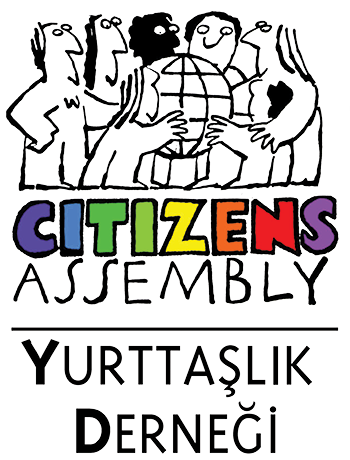Civil Society Workshop in Çanakkale: Food & Agricultural Policies and Intervention Strategies
In the workshop where the representatives of civil society, especially in Çanakkale, Marmara Basin and surrounding provinces are invited; the agendas of citizens and civil society in the basin scale, the monitoring of public policies within the context of these agendas, citizen participation in public policies and the evaluation of agriculture and food policies in the basin was discussed. The meeting also discussed possibilities to influence public policies as civil society representatives; possible collaborations and interlocutors were identified and methods of involvement were discussed.
The meeting started with the presentation of Orkun Doğan from Bilgi University within the scope of his research on Marmara Basin. Doğan explained the demographic characteristics, migration capacity, agricultural lands, agricultural structure and agricultural product diversity of Çanakkale. Stating that Çanakkale was chosen as the happiest city in terms of livability and therefore received a lot of immigration, Doğan emphasized that this situation transformed Çanakkale's production and labor regime.
In the second session, Kenan Kaynaş from Çanakkale Onsekiz Mart University talked about agricultural policies and production processes, and Murat Kapıkıran, Head of the Istanbul Branch of the Chamber of Agricultural Engineers, explained food policies and consumption processes. Kaynaş emphasized that the main shortcoming of public policies in the agricultural sector in Turkey is lack of production planning and he stressed that some municipalities try to close this gap by supporting associations of producers.
Stressing that there is no agricultural policy in Turkey, Prof. Dr. Kaynaş said "Even if there is one, it is not being applied. We see that the policies pursued by the Ministry of Agriculture of today are being carried out towards large capital...We need to create an image by increasing the quality and efficiency in production," says Kaynak, and adds, "But unfortunately we could not create this image. Production planning needs to be done. Due to the Ministry's idle structure, the state cannot plan production. The ministry needs to do this and report it to the producers' associations. The ministry should say, for example, in Çanakkale province, onion, garlic and beans are grown; tomatoes are grown in Balıkesir, and then they should support them. " According to Kaynaş, the points that public policies should turn towards are; increasing the quality and productivity in production, compatibility to the competition with world markets, stability in production, increasing foreign trade, developing sustainable production that respects the environment, developing wholesale markets of products, establishing producers' associations, ensuring food safety and using food laws effectively and better informing the consumer. Kapıkıran emphasized the new generation cooperatives and social solidarity networks.





